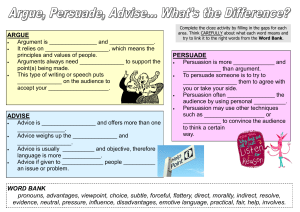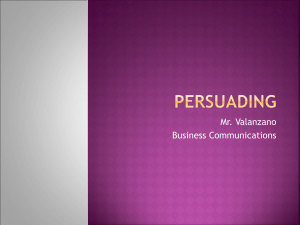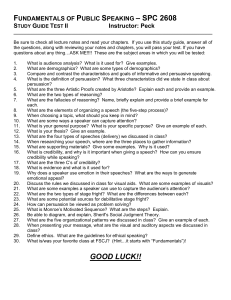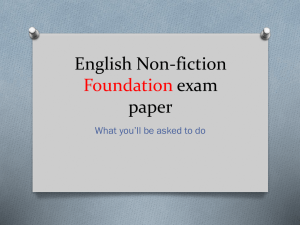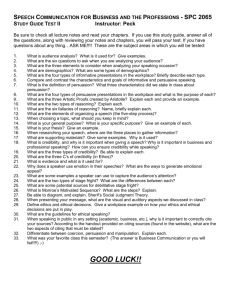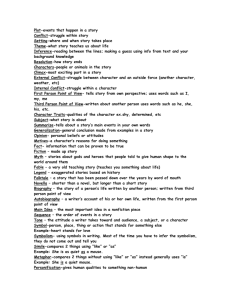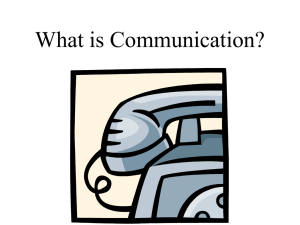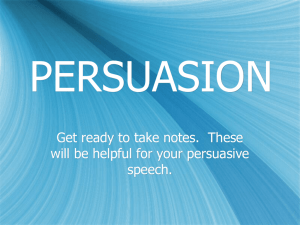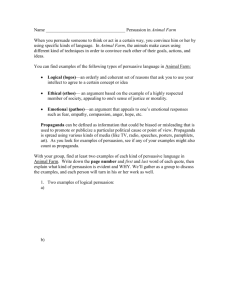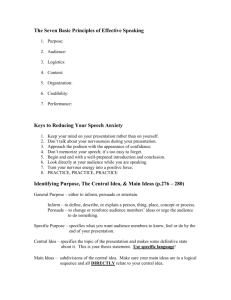Persuasion and Influence
advertisement
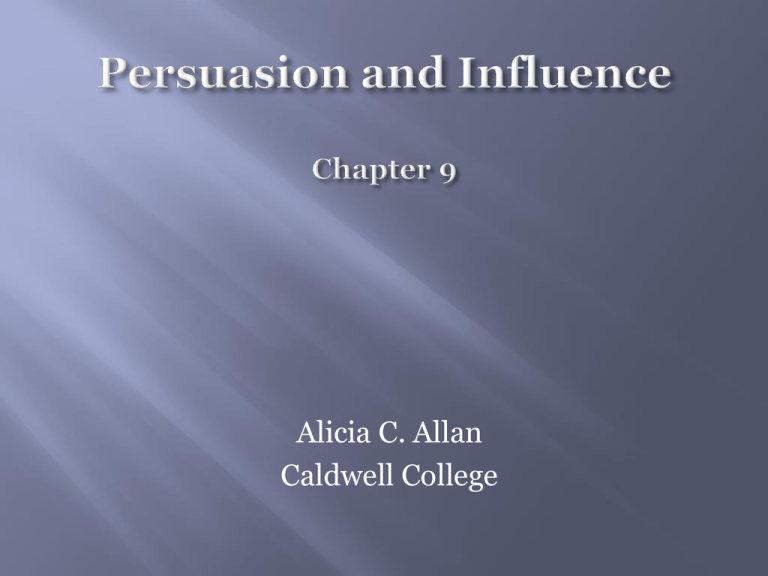
Alicia C. Allan Caldwell College Identified three different approaches to persuasion: Ethos relies on persuading on the basis of emphasizing the quality of the speaker. Logos refers to persuasion using logic or reason. Pathos tries to persuade others by appealing to their emotions. http://movies.netflix.com/WiPlayer?movieid= 70156884&trkid=3325854 Influence: the action or process of producing effects on the actions, behavior, opinions, etc., of another or others Persuasion: to induce to believe by appealing to reason or understanding (convince: to persuade the judge of the prisoner's innocence). to prevail on (a person) to do something, as by advising or urging: We could not persuade him to wait. Influence Persuasion “involves changing the attitudes and behaviors of other people without using any force or show of power.” “… changing an opinion by presenting your view sometimes by using argument or debate.” Attitudes Verbal repertoires Indicative of how people might behave in certain situations Some parents don’t want to confront their child Frustration leads to irrational actions Parents have strong bias against “rewards” ABA is labor-intensive compared to counseling http://www.youtube.com/watch?v=02JlnqUh XeU&feature=related Initial meeting: Listen Assess situation Use shaping/reflection Determine how to proceed – best approach Framing Information Technical Expertise Format (context) Examples of similar cases Taking back control, setting rules, delivering consequences Avoid arguments Graphs Simple (from published literature or your own work) Powerful tool for behavior analyst but can pose a problem… Trust Caring Responsible "If you would persuade you must appeal to interest rather than intellect.“ Benjamin Franklin (1706-1790) Uncommon problem behavior Eating disorder (Kennedy Krieger) Self-injurious behavior (UF) http://www.youtube.com/watch?v=Y1Xkf1jGN YY Four elements: Credibility Audience Solid case Effective communication “To convince anyone to do anything you have to be able to tell a good story” http://www.youtube.com/watch?v=_qDv7fC_i zw&feature=related Credibility = Trust + Experience Honest Reliable Leadership Integrity Effectiveness Gather information Identify leader Assess leader’s influence Analyze recent decisions Observe body language receptive, supportive hostile? Be prepared to pause for clarifications Begin with compelling story Show video/Photos Meet company needs/politics Change voice pitch/volume Present evidence – clear charts/graphs Anticipate objections End wit clear statement Compelling story Listen carefully Show you care Frame conversation Present evidence/information Technical expertise Credibility Know your audience Communicate effectively Bailey J., & Burch M. (2010). 25 Essential Skills & Strategies for the Professional Behavior Analyst. New York: Routledge “For the great majority of mankind are satisfied with appearance, as though they were realities and are often more influenced by the things that seem than by those that are” Niccolo Machiavelli
